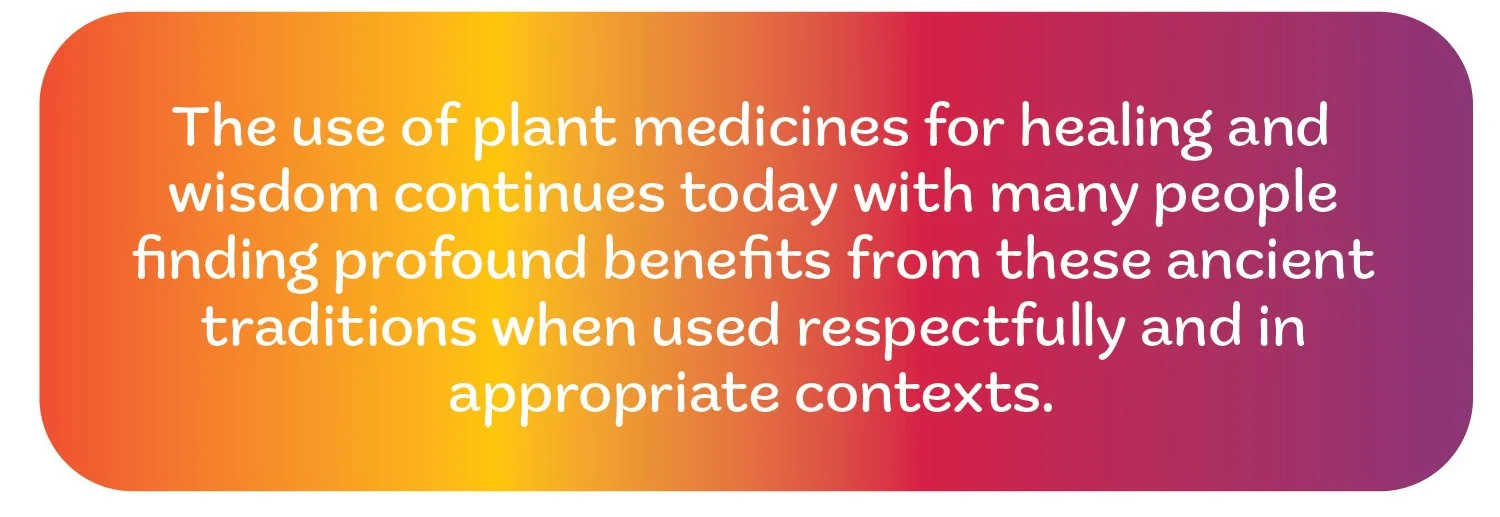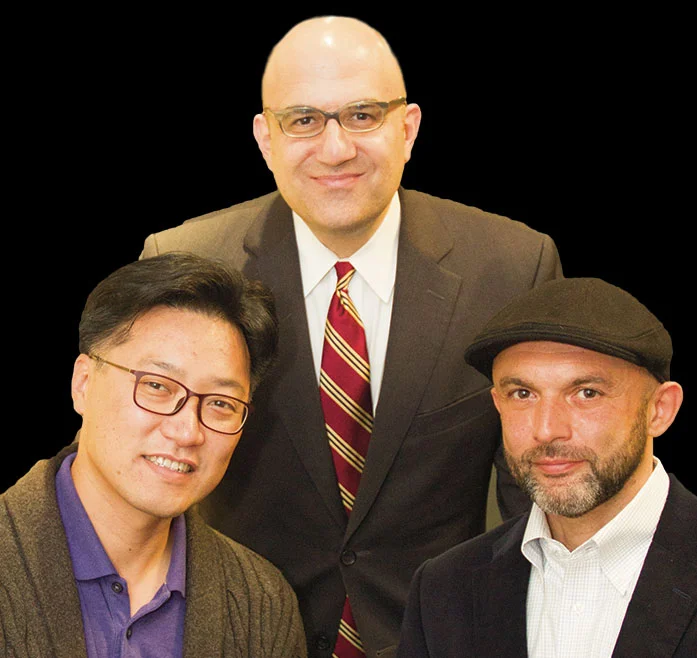By Hugh Ransley, MA, LLP
Life is a journey of growth and change. Along this path, we all face common human struggles—times of pain, feeling disconnected, and searching for meaning. In today’s world, we’re constantly bombarded with messages telling us to find happiness through buying things, creating certain identities, or living particular lifestyles. This pulls us away from our inner wisdom and authentic self.
How do we stay connected to who we really are amid all this noise? How do we touch that deeper part of ourselves?
Throughout history, people have tried to understand their own minds and find meaning in life. We’ve created many ways to access deeper awareness—from meditation and prayer to art and storytelling. Indigenous cultures worldwide have also worked with plant medicines like ayahuasca, peyote, and psilocybin mushrooms as tools for healing, connection, and spiritual insight. Sacred plant teachers continue to be central to many traditional healing systems offering pathways to expanded awareness and communion with nature and spirit.
The use of plant medicines for healing and wisdom continues today with many people finding profound benefits from these ancient traditions when used respectfully and in appropriate contexts. One common thread, in almost every practice, is that there’s more to our experience than what we normally see in our day-to-day consciousness. This day-to-day consciousness, along with our ability to reflect on ourselves, is both uniquely human and can create special kinds of suffering.
We build stories about ourselves and the world that can trap us in rigid thinking patterns. We start believing these stories are absolute truth rather than just one way of seeing things. This forgetting is at the root of much human suffering.
What is Ketamine Assisted Psychotherapy?
Ketamine Assisted Psychotherapy (KAP) combines the medicine ketamine with skilled psychotherapy to create a powerful healing approach. Ketamine is a routine medication that has been used safely as an anesthetic for decades. In much lower doses than those used for anesthesia, ketamine can create a temporary altered state of consciousness that helps people access different parts of their mind.
In KAP, you take ketamine under the supervision of trained professionals, usually by lozenge, or sometimes as a nasal spray. As the medicine takes effect (typically within 15-20 minutes), you experience a shift in perception and consciousness. This lasts approximately 45-90 minutes, during which you lie comfortably, often wearing eyeshades, and listening to carefully curated soundscapes to support the journey.
The ketamine itself creates several important effects:
It rapidly reduces symptoms of emotional distress
It temporarily changes how the brain processes information
It creates a state where you can view your life and problems from a new perspective
It helps the brain form new connections
Unlike typical medications that you take daily, ketamine is used as a catalyst for therapeutic experiences that occur during specific sessions. Ketamine prescribed for KAP is only taken by the client during the supervised KAP sessions.
Ketamine Therapy: A Window to the Self
KAP offers a modern approach to this age-old human quest for healing and insight. It helps your own inner wisdom emerge. With a trained therapist’s guidance, you can gain perspectives that are hard to reach in everyday life. The experience tends to loosen your grip on your usual sense of self and can offer profound insights into who we are beneath our everyday thinking mind.
Many people describe the ketamine experience as allowing them to observe their thoughts and emotions from a distance with less judgment and reactivity. This creates an opportunity to relate to difficult experiences in new ways. The medicine itself has an interesting effect of giving some separation from the ego creating an opportunity for self-reflection and learning.
Think of it this way: ketamine temporarily shifts the boundary between your everyday awareness and a deeper level of consciousness that’s usually hidden from view. Your ordinary consciousness is like a small selection from a much larger field of awareness.
This matches experiences we’ve all had—those moments when an idea or solution seems to “come to us” from somewhere beyond our normal thinking. Artists, scientists, and inventors throughout history have described similar experiences of receiving insights rather than creating them.
The Journey of Self-Discovery
During ketamine sessions, many people report feeling more emotionally open, mentally flexible, and able to reflect on themselves in new ways. They often access thoughts, feelings, and memories that were previously out of reach.
Ketamine helps the brain form new connections. This creates a window where insights can more easily lead to new ways of thinking. People find that KAP helps them in the following ways:
Break free from thought patterns that no longer help them
See long-term problems in new ways
Experience major shifts in how they view themselves and the world
Face difficult emotions with more compassion
At higher doses, ketamine can create profound experiences including feelings of unity with others or the universe, a sense of moving beyond time and space, meaningful symbolic experiences, feelings of sacredness, and a sense of encountering deep truths.
These experiences connect to what many wisdom traditions have described: a sense that our everyday reality emerges from something deeper and more unified.
Acceptance: The Heart of Healing
Learning to accept “what is” emerges as a central benefit of KAP. This acceptance matters deeply because accepting ourselves allows us to accept reality as it is, rather than how we wish it would be.
As humans, we don’t like to see ourselves as confused, afraid, selfish, or flawed. Yet during KAP sessions, people often see themselves more completely—both their strengths and their struggles. This can be challenging, but it’s an essential part of becoming more self-aware.
To truly change and grow, we need to first accept ourselves as we are. When we see ourselves more clearly during KAP sessions, we begin to accept all parts of ourselves, which helps us recognize and accept others more fully, too.
By temporarily shifting the boundaries between ordinary awareness and deeper aspects of mind, KAP creates healing through expanded awareness rather than forced change. Integration of insights and breakthroughs can take place following the KAP experience.
Integrated Counseling in Ann Arbor is committed to making KAP more accessible by offering affordable options for this transformative work, providing both individual sessions, and small group experiences with up to four people. The group setting not only reduces costs but also creates a supportive community environment where participants can share insights from their journey. This approach allows more people to benefit from KAP while maintaining the high quality of care and personal attention that’s essential for this deep work.
KAP should always be conducted under appropriate mental health supervision. Hugh Ransley is a Person Centered Therapist specializing in individual psychotherapy with adults and Ketamine Assisted Psychotherapy. He has been a practicing psychotherapist for over 18 years. Learn more on his website, integrated-counselinga2.com or give Ransley a call at (734) 556-6316.






































































































































































































Life is hard and yes, terrible things can and do happen, oftentimes to people who do not deserve it. Denying trauma and trying to inspire people out of its impact, both individually and collectively, has been the go-to method of dealing with trauma for generations.